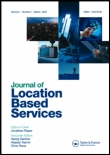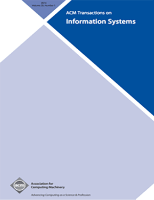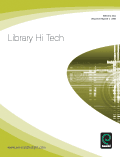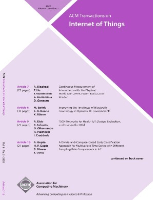
Journal of Location Based Services
Scope & Guideline
Pioneering Insights in Location Technology
Introduction
Aims and Scopes
- Geolocation and Navigation Technologies:
The journal explores advancements in geolocation technologies, including GPS, Wi-Fi, and Bluetooth, particularly in enhancing navigation systems and improving user experience in various environments. - Privacy and Ethical Considerations:
A significant focus is placed on the implications of location-based services on user privacy, including studies on de-anonymization, user consent, and privacy-aware design practices. - Data Analytics and Machine Learning Applications:
The journal emphasizes the use of machine learning and data analytics techniques to process location-based data, aiming to extract insights for applications such as urban planning and mobility studies. - User-Centric Design and Interaction:
Research on user interaction with location-based services is critical, focusing on cognitive issues, user preferences, and the design of intuitive interfaces for mobile devices. - Environmental and Social Impact Studies:
The journal includes studies that assess the impact of location-based services on societal issues, such as public health, urban mobility, and environmental awareness.
Trending and Emerging
- Context-Aware Services and Applications:
There is a growing emphasis on context-aware services that adapt to user behavior and environmental conditions, enhancing personalization and user engagement in location-based applications. - Advanced Machine Learning Techniques:
Recent studies increasingly utilize sophisticated machine learning models, such as deep learning and neural networks, for predictive analytics in location data, showcasing the potential for improved accuracy and efficiency. - Privacy-Enhanced Location-Based Services:
Research addressing privacy concerns is on the rise, focusing on methods to protect user data while maintaining the utility of location-based services, reflecting societal demands for better digital sovereignty. - Integration of IoT with Location Services:
The convergence of Internet of Things (IoT) technologies with location-based services is becoming a prominent theme, enabling more intelligent and interconnected applications across urban environments. - Impact of COVID-19 on Mobility Patterns:
Studies exploring the effects of the COVID-19 pandemic on mobility and location-based behaviors are emerging, providing insights into changes in social interactions and urban planning needs.
Declining or Waning
- Traditional Mapping Techniques:
Research on conventional mapping methods has decreased as more innovative approaches, such as augmented reality and mobile-first cartographic design, gain prominence. - Basic Location-Based Advertising Strategies:
While location-based advertising remains a topic of interest, there has been a shift away from basic strategies towards more complex frameworks that integrate user privacy concerns and behavioral insights. - Static Geospatial Analysis:
The focus on static, one-dimensional analyses of geospatial data has waned, with a growing preference for dynamic, real-time applications and context-aware systems. - General Mobile Learning Applications:
Topics related to generic mobile learning applications have become less frequent, as the journal increasingly emphasizes specific applications that leverage location-based technologies for targeted educational outcomes. - Non-Contextual User Studies:
Research focused solely on user studies without context or situational awareness is declining, as the field moves towards integrating contextual factors into user experience analysis.
Similar Journals

Human-centric Computing and Information Sciences
Transforming Computing with a Focus on Human ExperienceHuman-centric Computing and Information Sciences, published by the Korea Information Processing Society, represents a leading platform in the field of computer science, particularly focusing on the interaction between humans and computational systems. With an impressive Q1 ranking in the 2023 category of Computer Science (miscellaneous) and a commendable Scopus rank of #14/232 (94th percentile), this journal has established itself as a cornerstone for researchers and practitioners dedicated to advancing understanding in this vital area. Understanding the significance of making technology more accessible and effective for users, the journal has been an Open Access publication since 2011, promoting wide dissemination of knowledge without barriers. The journal's scope encompasses innovative methodologies, user experience design, and the integration of human factors into computing environments, making it essential reading for anyone interested in the intersection of technology and society. With all articles freely accessible, the journal not only contributes to scholarly discourse but also encourages collaboration among researchers worldwide, fostering further advancements in human-centric computing.

USER MODELING AND USER-ADAPTED INTERACTION
Exploring Adaptive Interactions for Enhanced LearningUSER MODELING AND USER-ADAPTED INTERACTION, published by SPRINGER, stands as a pivotal journal within the realms of Computer Science Applications, Education, and Human-Computer Interaction. With an ISSN of 0924-1868 and an E-ISSN of 1573-1391, this journal has established a reputable presence since its inception in 1991, continuing to contribute to the scholarly discourse through 2024. With an impressive impact factor reflective of its high visibility, it is ranked in the top quartiles, notably Q1 in both Computer Science Applications and Education, and Q2 in Human-Computer Interaction as of 2023. This positions the journal within the 95th percentile in Social Sciences Education and the 81st percentile in Human-Computer Interaction. As it encompasses a broad scope that integrates user modeling techniques with adaptive interaction strategies, the journal caters to the needs of researchers, professionals, and students keen on advancing knowledge in adaptive technology, educational tools, and user-centric design. While not currently open access, it remains a valuable resource for anyone interested in the intersection of user experience and technological adaptation.

Cognitive Computation and Systems
Bridging Cognitive Science and Computational Excellence.Cognitive Computation and Systems is an innovative open-access journal published by Wiley, dedicated to advancing the fields of Artificial Intelligence, Cognitive Neuroscience, and Computer Science Applications. Based in the United Kingdom, this journal has established itself as a key resource for researchers, students, and professionals alike since its inception in 2019. With a focus on the convergence of cognitive theories and computational methodologies, Cognitive Computation and Systems aims to publish high-quality research that bridges holistic cognitive processing with algorithmic design. Although the journal is currently categorized in the lower quartiles of its fields, it provides a unique platform for disseminating pioneering ideas that can drive the vital intersection of computer vision, pattern recognition, and psychology. Scholars can take advantage of its open-access model, ensuring that research findings are freely available, thus promoting wider knowledge sharing and collaboration within these rapidly evolving domains. With its ambitious scope and commitment to quality, this journal is poised to make a significant impact in its respective fields.

ACM Transactions on the Web
Bridging Theory and Practice in Web ApplicationsACM Transactions on the Web is a highly regarded journal published by the Association for Computing Machinery (ACM), focusing on the vast and evolving field of web technologies and their applications. With an impact factor that places it in the Q2 quartile of the Computer Networks and Communications category for 2023, this journal ranks #154 out of 395 in its discipline, showcasing its significance in advancing research and knowledge in the domain. Since its inception in 2007 and continuing through 2024, the journal has been dedicated to publishing original research that contributes to all aspects of web-based systems, applications, and services. ACM Transactions on the Web provides an essential platform for scientists, engineers, and practitioners engaged in web research, offering insights into cutting-edge methodologies and emerging technologies. Readers will appreciate the depth and diversity of articles, which encompass both theoretical and applied research, as well as reviews and case studies. The journal's commitment to quality and rigor makes it a valuable resource for anyone invested in the future of web technologies.

Future Internet
Unlocking the Future of Internet TechnologiesFuture Internet is a leading open-access journal published by MDPI, dedicated to advancing the field of Internet technologies and communication networks. Since its inception in 2009, the journal has provided a platform for rigorous research and innovative ideas in the context of the rapidly evolving digital landscape. Based in Switzerland, it has established itself as a prominent publication, earning a commendable Q2 ranking in the category of Computer Networks and Communications for 2023. With a Scopus ranking of #87/395 and a notable 78th percentile, Future Internet fosters interdisciplinary collaboration, making valuable contributions to the understanding of Internet systems, protocols, and applications. Researchers, professionals, and students alike will find a wealth of insightful articles addressing both theoretical foundations and practical implementations. The open-access format ensures that all readers have immediate and unrestricted access to high-quality research, facilitating knowledge dissemination and informed decision-making in academia and industry alike.

ACM TRANSACTIONS ON INFORMATION SYSTEMS
Advancing Knowledge in Information SystemsACM Transactions on Information Systems, published by the Association for Computing Machinery, serves as a leading forum for the dissemination of high-quality research in the domain of information systems. With an impact factor consistently placing it in the prestigious Q1 quartile across multiple categories including Business, Management and Accounting, Computer Science Applications, and Information Systems, this journal has established itself as a key resource for researchers, practitioners, and students seeking to advance their understanding of information systems. The journal encompasses a broad scope, featuring innovative methodologies, theoretical advancements, and practical applications that address contemporary challenges in the field. Although it does not currently provide open access options, the insights shared within its pages significantly contribute to shaping academic discourse and promoting best practices in the evolving landscape of information systems. With its impressive Scopus rankings, ACM Transactions on Information Systems remains at the forefront of scholarly communication, encouraging rigorous inquiry and collaboration.

KSII Transactions on Internet and Information Systems
Fostering Innovation and Collaboration in Internet Research.KSII Transactions on Internet and Information Systems is a leading academic journal dedicated to advancing the fields of Internet technology and information systems. Published by the KSII-Kor Soc Internet Information, this journal has established itself as a significant contributor to research since its inception in 2007, with a focus on innovative solutions and methodologies in computer networks and communications as well as information systems. With a Category Quartile of Q3 in both fields for 2023, it ranks in the 44th percentile among its peers according to Scopus, making it a reputable platform for authors to share their findings. While available in print, the journal also promotes open access, ensuring broad dissemination of research findings. The editorial team is committed to maintaining high scholarly standards and relevance, inviting contributions from researchers, professionals, and students eager to push the boundaries of knowledge in today's rapidly evolving digital landscape. For those engaged in or studying these dynamic fields, the KSII Transactions on Internet and Information Systems remains an invaluable resource for cutting-edge research.

LIBRARY HI TECH
Advancing Knowledge in Library and Information SciencesLIBRARY HI TECH is a distinguished peer-reviewed journal published by Emerald Group Publishing Ltd, offering a vital platform for researchers, professionals, and students in the fields of Library and Information Sciences and Information Systems. Since its inception in 1983, this journal has been instrumental in disseminating cutting-edge research and innovative practices, boasting an impressive Q1 ranking in Library and Information Sciences and a Q2 ranking in Information Systems as of 2023. Recognized globally for its robust scholarship, LIBRARY HI TECH holds significant positions in Scopus, ranking #22 out of 280 in Library and Information Sciences, placing it in the top 92nd percentile, and ranking #77 out of 394 in Computer Science — Information Systems, with an admirable 80th percentile. This journal not only enriches the academic dialogue but also contributes to the practical evolution of library technologies and information management, making it an essential resource for those keen on advancing their knowledge in these dynamic fields. With no open access, access is typically gained through institutional subscriptions or direct purchase, ensuring high-quality dissemination of research findings.

Public Transport
Shaping the Future of Transportation Research.Public Transport is a prestigious journal published by Springer Heidelberg, focusing on the critical field of transportation systems and their impacts on urban planning, infrastructure, and environmental management. With an ISSN of 1866-749X and an E-ISSN of 1613-7159, the journal has established itself as a vital resource for researchers and practitioners alike, particularly noted for its Q2 ranking in Information Systems, Management Science and Operations Research, and Transportation, alongside a Q1 ranking in Mechanical Engineering as of 2023. This blend of categories underscores its interdisciplinary nature, making it an essential reading for individuals aiming to enhance their understanding of public transport systems from various angles. While the journal currently does not offer open access, its authoritative articles are critical for driving innovation and policy in the transportation sector. With a converged publication period from 2009 to 2024, Public Transport continues to lead discussions, disseminate research trends, and provide insight into the evolution of transportation methodologies, reflecting its significant impact as a reliable academic source in this crucial field.

ACM Transactions on Internet of Things
Advancing Knowledge in IoT InnovationsACM Transactions on Internet of Things, published by the Association for Computing Machinery, is a leading journal focused on the rapidly evolving field of Internet of Things (IoT) technologies and applications. With an ISSN of 2691-1914 and an E-ISSN of 2577-6207, this journal aims to provide a premier platform for researchers, practitioners, and students to disseminate their findings and insights. It boasts a strong reputation with a current impact factor that positions it in the Q2 category across key domains including Computer Networks and Communications, Software, and Information Systems, reflecting its contribution to advancing knowledge in these areas. The journal, covering topics from IoT architectures and protocols to their applications in smart cities and healthcare, is dedicated to fostering innovative research that drives the future of connected devices. Researchers seeking to contribute to a high-impact publication are encouraged to consider this journal as it continues to shape the landscape of IoT research through its rigorous peer-review process and commitment to open exchange of ideas.